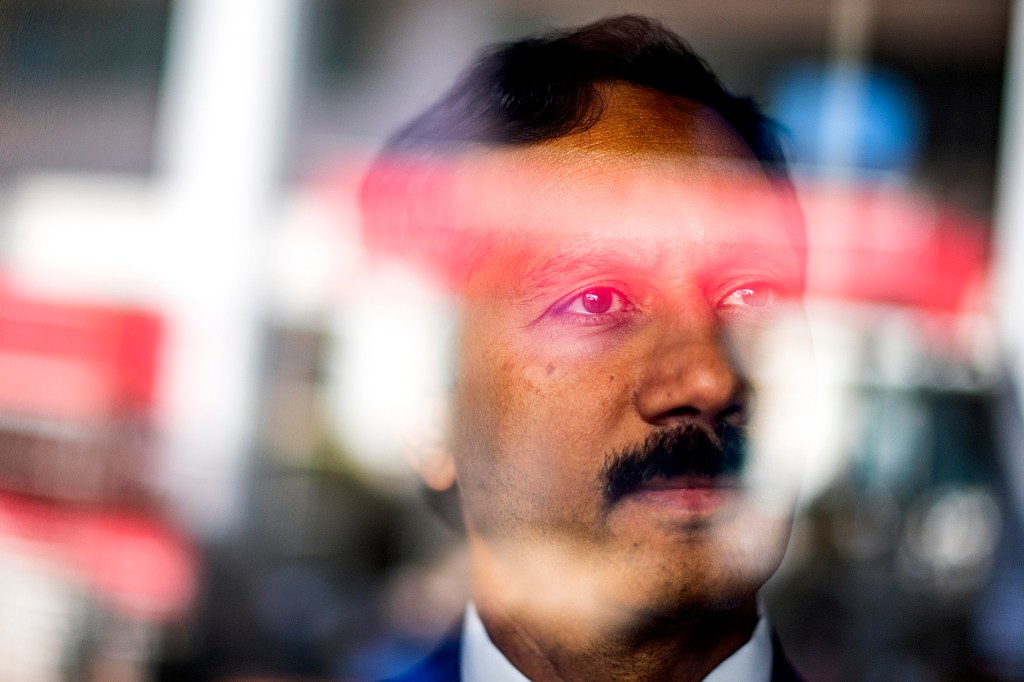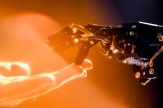The future of manufacturing will be data-driven. Are we up to the task?

A new industrial revolution—a transformation in manufacturing—is underway, and in order to remain competitive globally, says Sagar Kamarthi, the people working in this industry must be able to keep up with the skills that new machines require.
Kamarthi, an industrial engineer by training and a professor of mechanical and industrial engineering at Northeastern, is doing his part in the shift toward modernizing manufacturing. Since October, he has been leading a team of researchers in an endeavor to develop courses to help people working in manufacturing retool their skills.
Supported by a $2 million grant from the National Science Foundation, Kamarthi will direct a program to design, develop, and deploy online data science curricula targeting professionals and college students interested in advancing their skills and knowledge for the digital age and artificial intelligence-driven world.
To allow learners to tailor the curricula to their individual needs, the team is building a system that prescribes the right set of courses and modules taking into consideration the learner’s aptitude, competency, and workplace needs. In this effort, the researchers plan to discover and study learning principles unique to online learners.
Kamarthi, who also directs the College of Engineering’s graduate program in data analytics engineering, develops algorithms that enable machines to detect errors and anticipate failures within their own systems. Beyond manufacturing, he also applies his machine learning expertise to other fields, such as healthcare and medicine. He is involved in research projects that attempt to develop methods for objective pain measurement and personalized breast cancer treatment.
He is also developing masters and doctoral programs in advanced and intelligent manufacturing, as part of which he will endeavor to establish, in collaboration with assistant professor of mechanical and industrial engineering Mohsen Moghaddam, a multi-use cyber-physical factory at Northeastern to prepare students for emerging Industry 4.0 technologies, such as the Internet of Things, cyber security, robotics and automation, machine learning and artificial intelligence, augmented and virtual reality, and smart and sustainable manufacturing.
For his efforts in curriculum development, education program administration, teaching and student mentoring, Kamarthi has been selected as one of two faculty members to receive Northeastern’s Excellence in Teaching Award. Nominations for the award are made by students based on the following criteria: the faculty members’ depth of knowledge in the subject, their ability to provide effective links among course content, research, and experiential learning, and the rigor of the course content.
Jacqueline Isaacs, interim dean of the College of Engineering and a professor of mechanical and industrial engineering, commended Kamarthi for envisioning the emergence of the data analytics field in 2011 and designing the curriculum and the courses for Northeastern’s data analytics engineering graduate program. The program, which was launched in 2016 on the Boston campus and in 2019 on the Seattle campus, has 400 students to date, and is expected to nearly double in the fall.
“Over his 26 years at Northeastern he has been consistently at the forefront of his field and leveraged his research expertise in creating new classes, new programs, and making sure his undergraduate and graduate students get the best and most up-to-date education,” Isaacs wrote in her nomination letter for Kamarthi.
Kamarthi says he was thrilled and honored to receive the award, and that he will use the recognition to contribute to the vision of Northeastern 2025, the university’s academic plan and blueprint for the future.
He says he enjoys teaching and mentoring.
“I consider teaching students critical thinking and life-long learning skills is as important as teaching them ideas, concepts, and formulas,” he says.
For media inquiries, please contact media@northeastern.edu.





